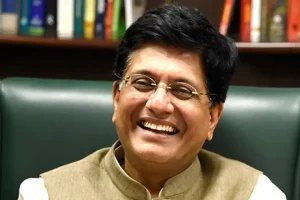India took on the rich nations at the World Trade Organisation’s ministerial conference in Geneva over their one-sided proposal to limit the subsidies extended by developing countries to ensure the livelihood of poor fishermen while keeping their own subsidies to big fishing fleets intact. Commerce and Industry Minister Piyush Goyal pointed out at the conference on Tuesday that India’s subsidy is only $15 per year for every fisherman’s family, in contrast to rich countries that pay as much as $42,000, $65,000, and $75,000 to one fisherman family.
According to estimates, global fisheries subsidies are between $14 billion and $54 billion a year.
“I urge you to take cognizance of the fact that many nations from both hemispheres allowed their gigantic industrial fleets to exploit and plunder the ocean's wealth over the past several decades, leading to highly unsustainable fishing. In contrast, India maintained fleets of modest size that largely fished in its Exclusive Economic Zone, operating with passive gear and leaving bare minimum footprints on the seascape,” Goyal said at the 12th Ministerial Conference of the WTO.
Goyal sought a 25-year exemption instead of seven years mentioned in the draft text proposed by the developed countries for the proposed overfishing subsidy prohibitions.
While many voices have already started pointing fingers at India, acceptance of the developed countries stand would have hurt more than 20 million people in the country who are engaged in fishing, the country’s policymakers said.
Negotiations on fisheries subsidies have been going on for more than two decades now.
A chunk of fishing activities is concentrated around the 2.36 million Hectare area of tanks and ponds. Culture-based fishery is predominant here contributing to the maximum share in total fish production, according to an official statement.
The current production from tanks and pond is 8.5 million MT.
India’s fishing industry is key to its growth and expansion of the blue economy.
“We understand that India is being particularly blamed for ‘blocking progress’ in negotiations…no deal is better than a bad deal at this stage, and India and other developing countries should be ready to walk out and not cave in front of the nefarious agenda of developed countries, supported by the WTO secretariat,” the Swadeshi Jagran Manch said in a statement.
India, with a coastline of about 7.5 thousand kilometres has carved out a blueprint on blue economy. A holistic ocean policy is key for India’s economy to touch the $5 trillion mark, experts said, adding that issues relating to the environment and maritime security need to be weaved into the blueprint.
“We cannot accept the developed countries proposal moved at the WTO. We need to protect out fisherfolk. Accepting the current proposal would deal a huge blow to our fishing community. At a time when we are recovering from the Covid 19 pandemic phase, focus needs to be on boosting every segment of the economy and protecting livelihoods of our people," Swadeshi Jagran Manch national co-convenor Ashwani Mahajan told India Narrative.
In May 2020, the Narendra Modi government launched the Pradhan Mantri Matsya Sampada Yojana (PMMSY) under the Aatmanirbhar Bharat Covid-19 relief package to support the blue economy through sustainable and responsible development of fisheries sector.
Blue economy supports about 10 per cent — $1.5 trillion of China’s gross domestic product. In India it is about 4 per cent.
While the Organisation for Economic Co-operation and Development (OECD) has been highlighting that while fishers can benefit from government support, there is an urgent need to remove the incentives to over-fish. India has argued that its fisheries sector is traditional and small-scale in nature. “We are essentially one of the disciplined nations in sustainably harnessing the fisheries resources,” Goyal added.
Also read: Rich countries stay bull-headed at WTO –refuse to lift waiver on Covid 19 drugs and equipment
India will continue to export wheat to needy countries, says Piyush Goyal at WEF meet in Davos




















